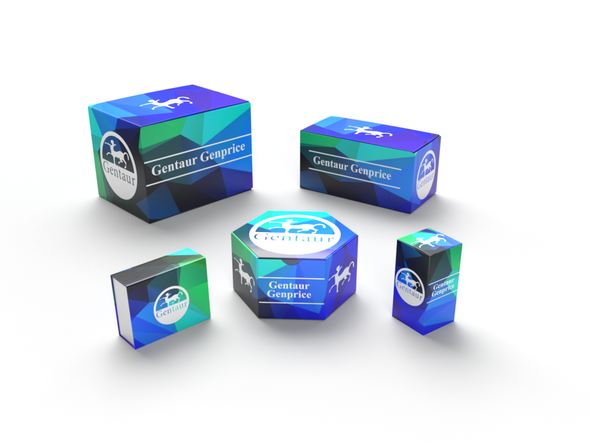740
Human Carnitine-acylcarnitine translocase (CACT) ELISA Kit | AE18956HU
- SKU:
- 740-AE18956HU
- Availability:
- Usually ships in 5 working days
Description
Human Carnitine-acylcarnitine translocase (CACT) ELISA Kit | AE18956HU | Gentaur UK, US & Europe Distribution
Species Reactivity: Human (Homo sapiens)
Abbreviation: SLC25A20
Alternative Name: CAC; CACT; carnitine/acylcarnitine carrier protein|carnitine/acylcarnitine translocase
Application: ELISA
Range: 0.625-40 ng/mL
Sensitivity: 0.235 ng/mL
Intra-Assay: ≤5.3%
Inter-Assay: ≤8.3%
Recovery: 1, 06
Sample Type: Serum, Plasma, Other biological fluids
Detection Method: Sandwich
Analysis Method : Quantitive
Test Principale: This assay employs a two-site sandwich ELISA to quantitate SLC25A20 in samples. An antibody specific for SLC25A20 has been pre-coated onto a microplate. Standards and samples are pipetted into the wells and anySLC25A20 present is bound by the immobilized antibody. After removing any unbound substances, a biotin-conjugated antibody specific for SLC25A20 is added to the wells. After washing, Streptavidin conjugated Horseradish Peroxidase (HRP) is added to the wells. Following a wash to remove any unbound avidin-enzyme reagent, a substrate solution is added to the wells and color develops in proportion to the amount of SLC25A20 bound in the initial step. The color development is stopped and the intensity of the color is measured.
Product Overview: Carnitine-acylcarnitine translocase is one of several closely related mitochondrial-membrane carrier proteins that shuttle substrates between cytosol and the intramitochondrial matrix space. This protein mediates the transport of acylcarnitines into mitochondrial matrix for their oxidation by the mitochondrial fatty acid-oxidation pathway. Mutations in this gene are associated with carnitine-acylcarnitine translocase deficiency, which can cause a variety of pathological conditions such as hypoglycemia, cardiac arrest, hepatomegaly, hepatic dysfunction and muscle weakness, and is usually lethal in new born and infants.
Stability: The stability of ELISA kit is determined by the loss rate of activity. The loss rate of this kit is less than 5% within the expiration date under appropriate storage condition. The loss rate was determined by accelerated thermal degradation test. Keep the kit at 37°C for 4 and 7 days, and compare O.D.values of the kit kept at 37°C with that of at recommended temperature. (referring from China Biological Products Standard, which was calculated by the Arrhenius equation. For ELISA kit, 4 days storage at 37°C can be considered as 6 months at 2 - 8°C, which means 7 days at 37°C equaling 12 months at 2 - 8°C) .






